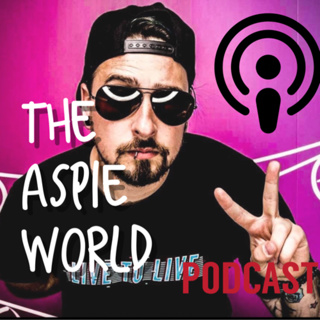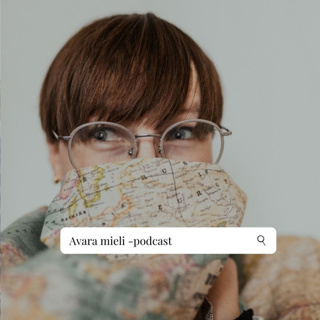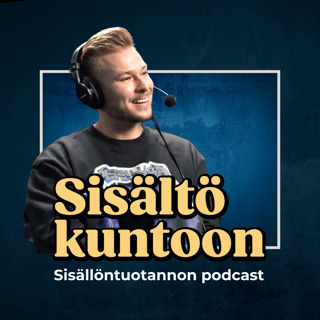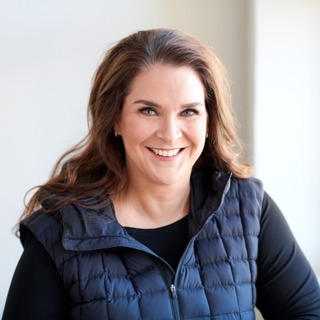
First person diagnosed with autism dies 89
In this video, Dan, who has Autism, ADHD, and OCD, discusses In a poignant and historic moment, we reflect on the life and legacy of the first person diagnosed with autism in Mississippi, who has sadly passed away at the age of 89. This video is a tribute to an individual whose journey had a profound impact on the autism community in the state. Back in 1938, when this remarkable man received his diagnosis, autism was not widely understood or recognized. His diagnosis marked the beginning of a journey that would not only shape his life but also contribute to the broader understanding of autism in Mississippi.
2 Joulu 20232min

Do You Love Someone Diagnosed With Autism? (What To Do)
Embracing Autism: A Journey of Love and Understanding: BETTER HELP: https://link.heropost.io/BH Autism Awareness and Acceptance Month is here, and it's time to shine a light on something incredibly close to my heart - loving someone diagnosed with autism! 💖 👀 Do you know that 1 in 54 children in the United States is diagnosed with autism? It's a unique journey filled with love, challenges, and endless opportunities for growth. 🌱 🤗 In a world where we often strive for "normal," let's celebrate the extraordinary! Our loved ones with autism have their own special ways of seeing the world, and it's a beautiful thing. 💫 💞 When you love someone with autism, it's all about patience, empathy, and creating a safe and inclusive space. Sometimes, it's about finding joy in the smallest victories, like a genuine smile or a moment of connection. 🌈 🤔 Wondering what to do when you love someone with autism? Here are a few tips to cherish and support them: 1️⃣ Educate Yourself: Knowledge is power. Learn about autism to better understand their perspective. 2️⃣ Listen and Communicate: Communication might be different, but it's essential. Be a good listener and use clear, concise language. 3️⃣ Embrace Their Interests: Celebrate their passions, no matter how unique they may be. 4️⃣ Create Routine: Predictability can be comforting. 5️⃣ Show Unconditional Love: Your love means the world to them. 🙏 Let's spread love, awareness, and acceptance this Autism Awareness Month and every day! Together, we can create a world where everyone is valued and included, regardless of their neurodiversity. 💞🌍
1 Joulu 20234min

Autistic Girl 11 Gets Masters Degree!
In this video, Dan, who has Autism, ADHD, and OCD, discusses this remarkable individual's intelligence quotient (IQ) has been reported to surpass even the legendary Albert Einstein. Her extraordinary academic abilities paved the way for her to complete a master's degree at such a young age, challenging the norms and showcasing the incredible potential and capabilities of individuals with autism. Join us in celebrating this awe-inspiring achievement as we explore the significance of recognizing and supporting the unique talents and strengths of individuals with autism. This story serves as a powerful reminder that neurodiverse individuals can excel in various fields, shattering stereotypes and misconceptions about autism along the way. We'll also delve into the importance of inclusive education and providing appropriate opportunities for individuals with autism to thrive. This story underscores the significance of early identification, intervention, and support for children with autism, setting a new standard for their future possibilities. The incredible success story of this young girl has garnered worldwide attention and admiration, shedding a brilliant light on the remarkable capabilities of individuals with autism. In this video, we'll explore the details of her journey, the challenges she faced, and the unwavering support that made this achievement possible.
30 Marras 20231min

Autistic Adults Get Bullied (What You Should Do)
Autistic Adults Get Bullied (What You Should Do) @discoverbrillia Brillia is a non-prescription homeopathic medication to help control anxiety, irritability/hyperactivity and improve focus and attention for children, teens and adults. https://www.discoverbrillia.com [CODE: ASPIE15 for 15% OFF] For shipments to the UK please email info@discoverbrillia.com They also offer a money back guarantee. Understanding the Challenges Faced by Autistic Adults: Autism spectrum disorder (ASD) is a neurodevelopmental condition characterized by differences in communication, social interaction, and repetitive behaviors. For autistic adults, navigating social situations and understanding social cues can be especially challenging. These difficulties can make them susceptible to bullying, as some individuals may perceive their behavior as "different" or "unusual." The Impact of Bullying on Autistic Adults: Bullying can have severe and long-lasting effects on anyone, but its impact on autistic adults can be particularly distressing. Victims of bullying may experience increased anxiety, depression, and feelings of isolation. Bullying can also affect their self-esteem and hinder their personal and professional growth. Additionally, the stress caused by bullying can exacerbate existing autism-related challenges, further affecting their overall well-being. Raise Awareness and Foster Understanding: The first step in addressing this issue is to raise awareness about the challenges faced by autistic individuals and the harmful effects of bullying. Community members, schools, workplaces, and families should come together to foster empathy, understanding, and acceptance of neurodiversity. By promoting inclusivity, we can create a supportive environment that discourages bullying. Educate and Empower: Education is a powerful tool in preventing bullying. Schools and workplaces should provide training sessions and workshops that educate individuals about autism and its various manifestations. Empowering people with knowledge can reduce misconceptions and negative attitudes, leading to a more accepting and compassionate community. Encourage Open Communication: Promote open communication within families, schools, and workplaces. Encourage individuals to express their feelings and experiences freely, allowing for a safe space to address concerns related to bullying. By fostering open communication, autistic adults can feel supported and know they are not alone in their struggles. Implement Anti-Bullying Policies: Schools and workplaces must have comprehensive anti-bullying policies in place that specifically address the needs of neurodiverse individuals. These policies should outline the consequences of bullying and emphasize the importance of reporting any incidents promptly. Support and Seek Professional Help: For individuals who have experienced bullying, it is essential to offer emotional support and understanding. Encourage them to seek professional help if needed, such as counseling or therapy, to cope with the emotional aftermath of bullying.
29 Marras 20234min

Autism Social Skills YOU Can Learn EASY
Autism and socialising can be difficult, it is hard to understand social communication for autism and many of the social interactions that happen involve non-verbal social gestures. For an autistic adult these can be super confusing and very difficult to know how to socialise and to keep up in a social situation. I have created 3 simple steps to understand this, and laid them out in this video to make it easier for you. If you have issues with autism and social skills and you'd like to add anything to this conversation please, pop it in a comment :).
28 Marras 20233min

Autism Social Anxiety SUCKS! (Here’s Why)
I was working on my autism course, and YouTube surprised me with an invite to a VIP Labour Party conference. Social events make me anxious, so my friend Ian joined me for support. En route, we faced traffic, intensifying my anxiety about being late. Upon arrival, I realized the coordinates led us to the venue, not parking, causing more stress. A call to a local friend saved the day. Finding parking always makes me anxious, but Google and friends helped. Inside, I needed to take my medication, and the crowded, noisy room overwhelmed me. The line for water was long, leaving me worried about my meds. Thankfully, my YouTube partner manager, Stella, came to the rescue with water. My main goal was to discuss autism and mental health with Alice Lomax, the MD of YouTube UK. To my surprise, it was easy, as she had been following my channel. Relief washed over me as I had taken my medication, arrived on time, and fulfilled my invitation's purpose. I even managed to get a selfie with Ed Milliband and meet some medical YouTubers and innovative business owners ( / keysieco . As the crowd dwindled, Ian and I seized the chance to leave. Heading home, I felt a sense of accomplishment, having conquered my social anxiety to attend the event, which was a significant achievement after the lockdown.
27 Marras 20237min

Autism Sensory Survival for Social Events
Brillia is a non-prescription homeopathic medication to help control anxiety, irritability/hyperactivity and improve focus and attention for children, teens and adults. https://www.discoverbrillia.com [CODE: ASPIE15 for 15% OFF] For shipments to the UK please email info@discoverbrillia.com They also offer a money back guarantee. Social events can be both exciting and daunting for anyone, but for individuals with autism, they can present unique challenges due to sensory sensitivities. Autism is a neurodevelopmental disorder that affects how people perceive and interact with the world around them. Sensory processing issues are a common aspect of autism, making crowded, noisy, and stimulating social gatherings overwhelming and distressing for some individuals. However, with thoughtful preparation and coping strategies, individuals with autism can not only survive but thrive during social events. Here are some helpful tips for autism sensory survival at social gatherings: 1. Plan and Prepare: Preparation is key to managing sensory overload during social events. Before attending an event, gather information about the location, the expected number of attendees, and the schedule. Knowing what to expect can help reduce anxiety and make the environment feel more familiar. 2. Communicate and Advocate: Inform close friends, family, or event organizers about your sensory sensitivities. Letting them know in advance allows them to make accommodations, such as providing a quiet space to retreat to if needed. Advocating for your needs is essential, and those who care about you will likely be supportive and understanding. 3. Use Calming Techniques: Practice relaxation techniques before the event, such as deep breathing, mindfulness exercises, or using sensory tools like stress balls or fidget spinners. These techniques can help regulate emotions and reduce anxiety during overwhelming situations. 4. Dress Comfortably: Choose clothing that feels comfortable and does not trigger sensory discomfort. It could mean wearing soft, loose-fitting clothes or clothes with minimal tags and seams. Feeling physically at ease can significantly impact how one copes with sensory challenges. 5. Headphones or Earplugs: Carry noise-cancelling headphones or earplugs to dampen loud noises at social events. These can be lifesavers in environments where noise levels can quickly become overwhelming. 6. Plan Breaks: Allow yourself or your loved one with autism to take breaks during the event. Stepping away from the crowd and finding a quiet space for a few minutes can provide much-needed relief and prevent sensory overload. 7. Visual Schedules: For individuals who benefit from visual support, consider creating a schedule or social story detailing the flow of the event. Knowing what comes next can reduce anxiety and create a sense of predictability. 8. Practice Social Scripts: For those who struggle with social interactions, practicing simple conversation starters or responses in advance can ease the pressure of socializing. 9. Bring a Support Person: Having a trusted friend, family member, or support companion can be reassuring and provide a sense of security during social events. 10. Focus on Enjoyment: Remember that attending social events should be an enjoyable experience. If certain situations become too overwhelming, it's okay to take a step back and prioritize self-care.
26 Marras 20237min

Autism Sensory Overload (3 Top Tips)
In this video, the speaker, Dan, who has autism and ADHD, shares three tips for navigating sensory overloads, a common challenge for autistic individuals: 00:00 Intro 00:50 Use Noise-Canceling Headphones: Dan recommends carrying noise-canceling headphones like the Apple AirPods Max to block out sensory triggers in noisy environments, helping to reduce overload. 01:24 Prioritize Comfort Over Fashion: When traveling or in situations where comfort is essential, Dan suggests wearing comfortable clothing like pajamas or sweats. You can change into more formal attire when necessary, providing a sense of control in unfamiliar environments. 01:57 Wear Sunglasses: Sunglasses can help in social situations and offer relief to those with light sensitivity. They also provide a way to avoid direct eye contact, which can be challenging for some autistic individuals. 02:24 Outro If you’re reading this you’re a hero! Comment “I am autistic!” so I can notice you! Not Autism Spectrum Disorder - Understanding the Sensory Crisis, but 7 steps to equal healthcare (sensory overload), but Dr. Wendy Chung Describes Details of Sensory Processing in the Autistic Brain, but AUTISTIC Sensory Overload - How It Impacts My Life As An Autistic Person, or any other video like Dr. Tracey Marks, Macmillan Cancer Support, Child Mind Institute, Orion Kelly - That Autistic Guy would make. This is a video where The Aspie World (AspieWorld1) Autism Sensory Overloads (3 Top Tips)
25 Marras 20232min





















